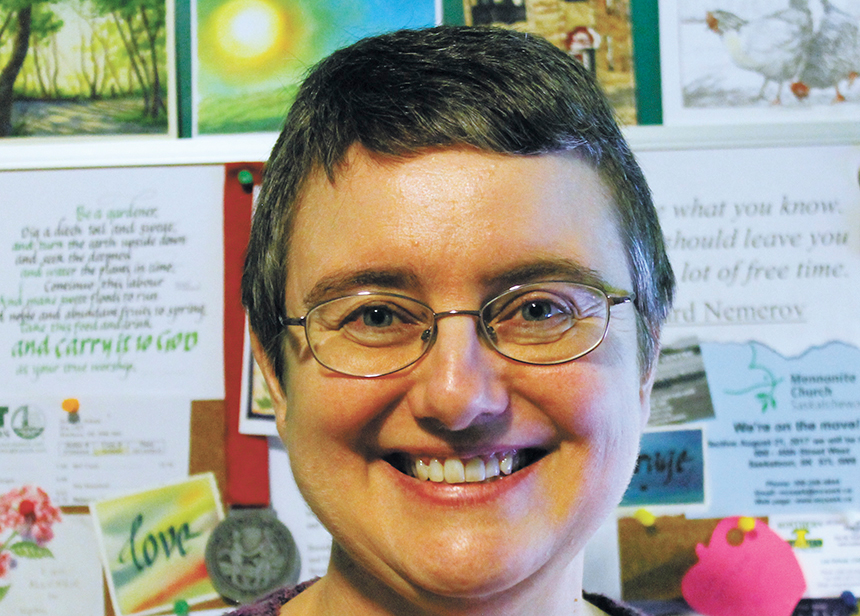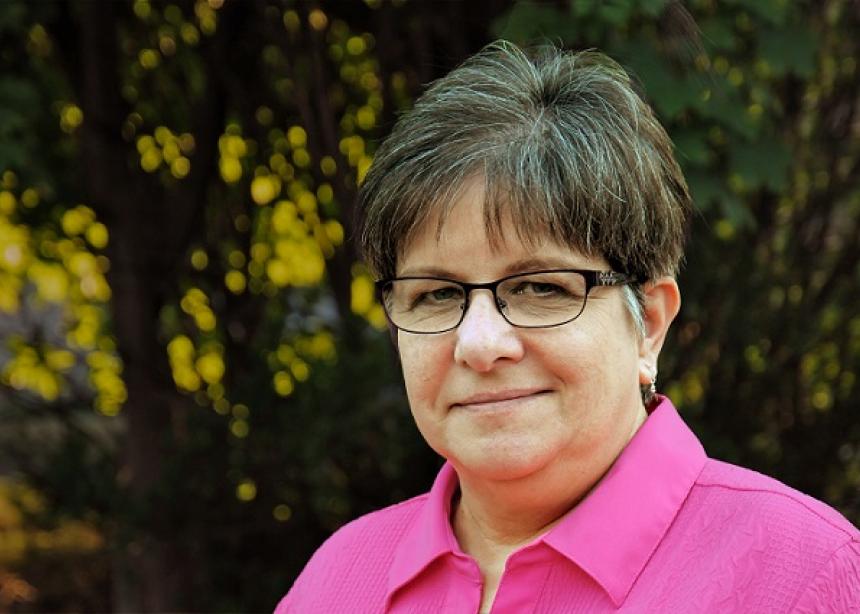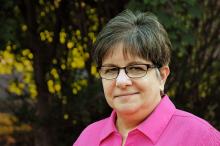Recently, my husband and I sat with friends at a table in an Ethiopian restaurant. As we dipped pieces of injera (sourdough flatbread) into the tasty sauces, we reported on our lives: a new business, a new grandchild, past school experiences, current professional realities.
Consider what happens when people gather around the table:
We express gratitude. The colours, textures and tastes of our food call us to thank the Creator for the fruits of the earth. We praise the cook and we ask God to “bless the hands that prepared this food.” At holiday meals, we gaze around the table, thankful for the love of gathered family and friends.
We offer and accept hospitality. Over the past several years, members of my congregation have been building friendships with people from the local Turkish community. This past Epiphany, they served us their traditional Noah’s pudding; our church shared Christmas cookies with them. The exchange of food was a way of saying, “I welcome you and want to be your friend.”
We build and strengthen community. The church potluck table helps us get to know brothers and sisters in the church, beyond the casual greetings in the church foyer. As we eat, people of different generations and walks of life connect with each other. We make enough food to share so that guests who show up without a dish feel welcome to join us.
We remember. Early in our marriage, my spouse and I were invited to supper at the home of nearby acquaintances who served taco salad—a dish we had not encountered before. It was an evening of great conversation and the start of a long-lasting friendship. Whenever I eat taco salad, I think with fondness of those friends.
Jesus understood the power of a memorable meal, exemplified by the last supper he ate with his disciples. ”Do this in remembrance of me,” he instructed them, as he distributed the bread and wine. Ever after that, the church has remembered the life, death and resurrection of Jesus through the communion table celebration.
We receive strength for the journey. In Take This Bread, Sara Miles tells the story of her coming to faith. An atheist, she walked into a church one Sunday and, on an impulse, accepted the bread and wine of communion. That act introduced her to the living Christ and to a welcoming faith community. Accepting the invitation to be a guest at Christ’s table launched her into organizing a food ministry for people of her city. Through the sharing of food, Sara identified her calling and gained strength to live it out.
In some mysterious way, communion becomes more than a morsel of bread and a swallow of grape juice. Sharing in those elements with other believers is an affirmation of our sometimes tenuous faith. Gathered at Christ’s table, we accept nourishment for our life of discipleship. “And we accept bread at this table, broken and shared, a living sign. . . . This is the place where we can receive what we need to increase: God’s justice and God’s peace” (“What is This Place,” Hymnal: A Worship Book, No. 1).
We live in a time when differences threaten to divide the church; the theological positions we cling to and the boundaries we construct can push us apart. We are tempted to dismiss, exclude—or ridicule—those whose positions differ from ours. It’s easy to just walk away from the table.
What would happen if, instead, we stepped toward each other, ready to accept the gifts that the table offers? Maybe we could set aside our theological debates for a time and instead host regular potlucks that intentionally include people with whom we disagree. There would be no agenda other than respectful conversation around honest, tasty food. A time to give and receive hospitality by sharing the stories of our lives. At the meal’s end, a communion table would nourish us all for the steps ahead.
For more on food, see:
An empty bowl
Peppernuts and anarsa
Mennonites connect over pancakes
Foodgrains Bank brews climate storm on Twitter
Food Cupboard provides emergency help in Wellesley
Introducing Donna Schulz, Saskatchewan Correspondent

Donna lives in Rosthern with her husband Leo, an insurance broker. The couple’s two adult children reside nearby in Saskatoon. Donna and Leo are members of Eigenheim Mennonite Church, where Donna currently serves as a deacon and teaches adult Sunday school. One of her most gratifying volunteer experiences has been teaching English to the Syrian couple her church sponsored a little over a year ago. When she’s not attending Mennonite Church Saskatchewan events or writing about them for Canadian Mennonite, Donna enjoys quilting and scrapbooking, reading and listening to music.





Add new comment
Canadian Mennonite invites comments and encourages constructive discussion about our content. Actual full names (first and last) are required. Comments are moderated and may be edited. They will not appear online until approved and will be posted during business hours. Some comments may be reproduced in print.